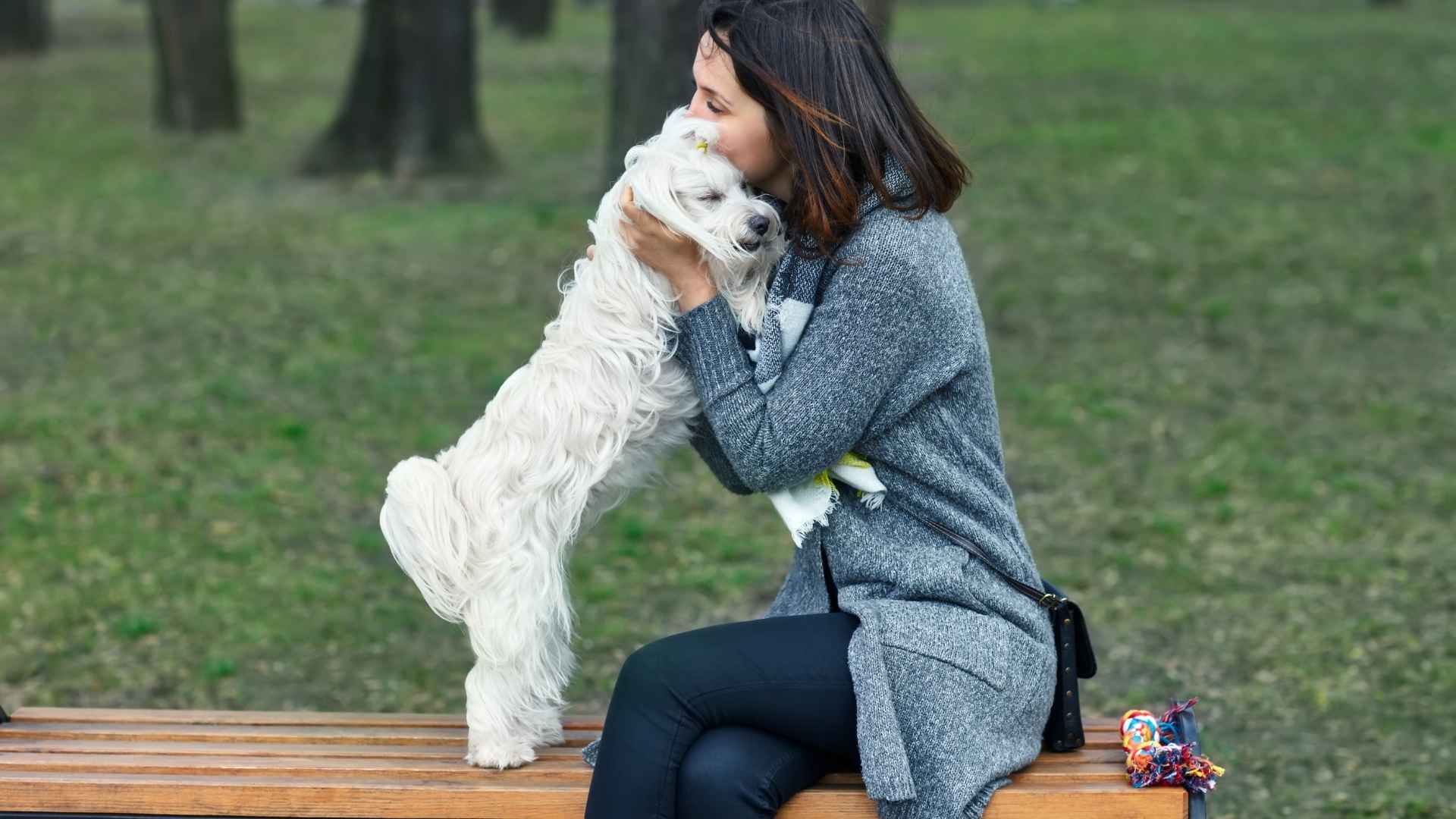Some dogs bark loudly. Others are emotional support dogs… they heal quietly.
The truth is… small therapy dogs often go unnoticed next to Golden Retrievers and Labrador Retrievers in the therapy section, but there are some of the best therapy dog breeds who can light up a room, soothe an anxious heart, and form strong bonds that last a lifetime. They have proven again and again that size has nothing to do with emotional strength.
In therapy settings like hospitals, clinics, and schools, they offer comfort, companionship, and the kind of love no medication can give. Plus, hospitals have special programs like animal-assisted therapy that prove these service dogs are at the top of their charm.
Small Therapy Dog Breeds
Dogs have a really sharp sense of smell, and they are able to detect chemical changes in human bodies, and hence can be great at detecting emotional changes.
If you need a calming presence, a happy distraction, or just a furry friend that sits quietly with you, we have compiled nine best therapy dogs perfect for the job, especially for pet therapy.
1. Yorkshire Terrier

The Yorkies have a tiny frame. They might look delicate, but it has the courage of a lion and the heart of a true emotional healer. Yorkies are often employed as service dogs for children and seniors alike because of their alert expressions and affectionate nature.
Key Therapy Traits:
-
Tiny but incredibly attentive and loves outdoor walks
-
Loves to snuggle and give affection
-
Easily portable… perfect for therapy visits
-
Adapts well to apartment or indoor living, stated by PetMD
-
Builds strong emotional bonds with their humans
Their manageable size and loving nature make Yorkies ideal emotional support animals for people with anxiety or depression. They could be curled up in a hospital bed or beside you during a tough day. This dog breed makes sure to give you comfort, not only cuddles.
2. Pomeranian
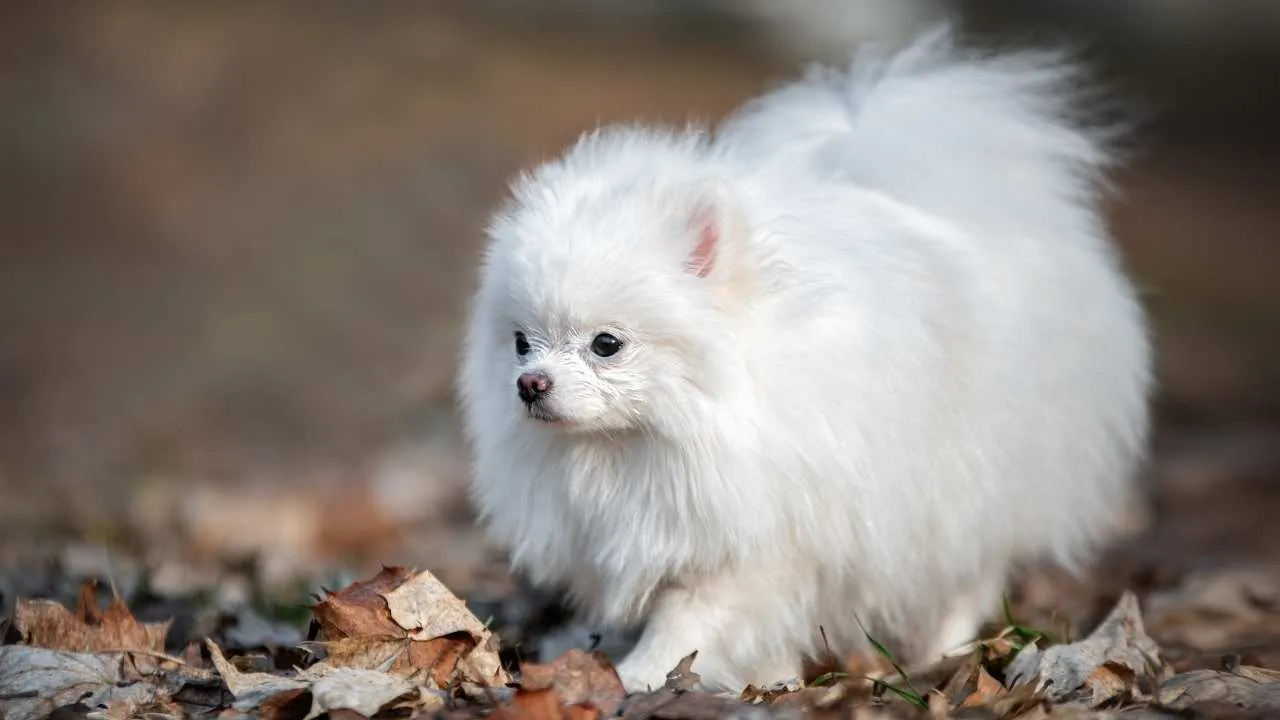
Fluff ball? Absolutely.
Featherweight therapist? Also, yes…
Pomeranians are the social butterflies of the small dog world, and they are absolute best at helping you with the social anxiety. Their cheerful attitude and sparkling personalities make them ideal for bringing smiles during therapy sessions. They love people… and people love their playful antics.
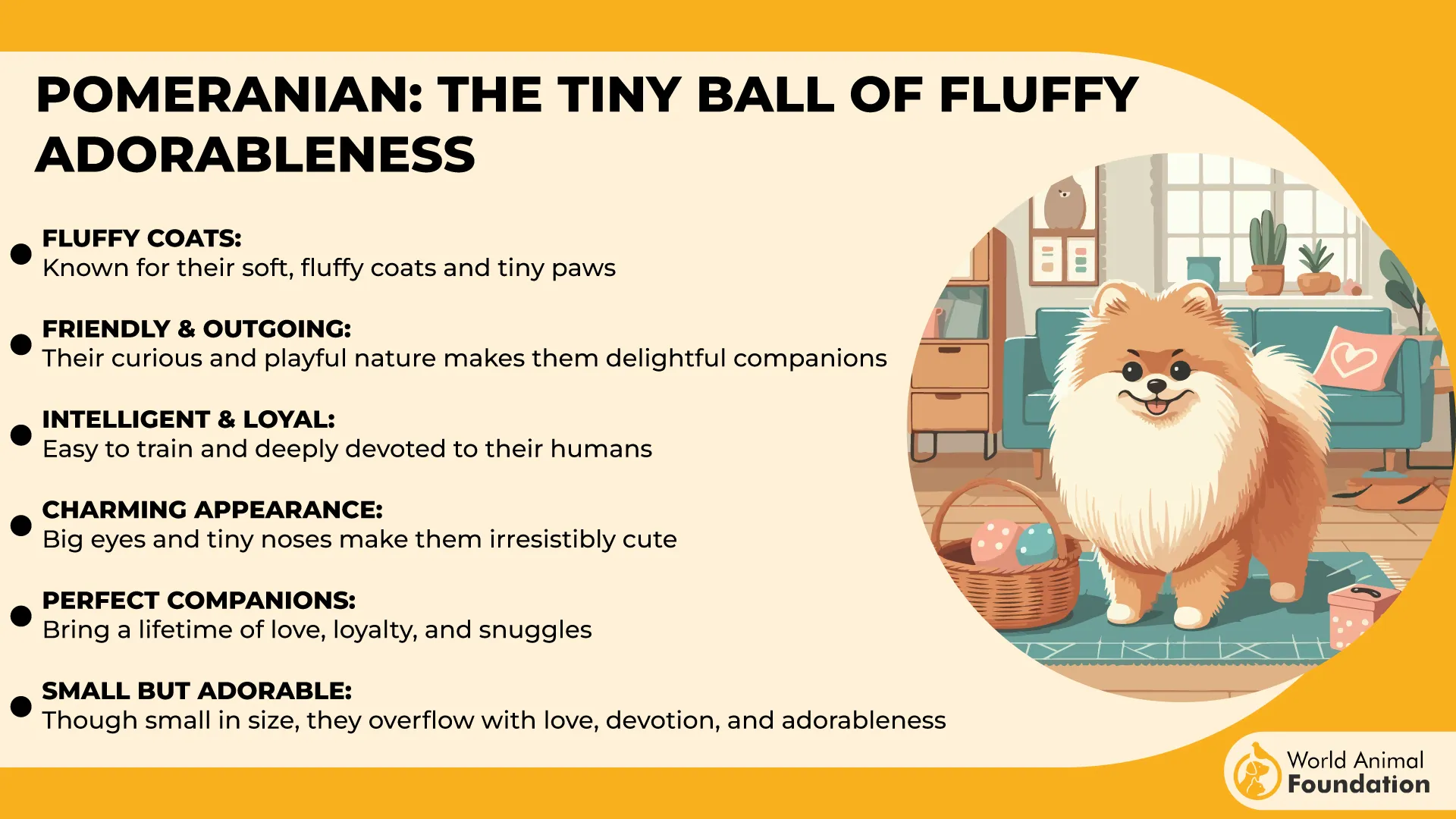
Key Therapy Traits:
-
Outgoing and affectionate
-
Light, portable, and easy to carry
-
Needs daily exercise and attention, as stated by Purina
-
Responds well to positive reinforcement training
-
Boosts mood just by being present
Poms are ideal emotional support dogs for those who love attention and affection. They practically radiate joy. And that is why they are great therapy dogs for people struggling with low energy or emotional disconnect.
3. Bichon Frise
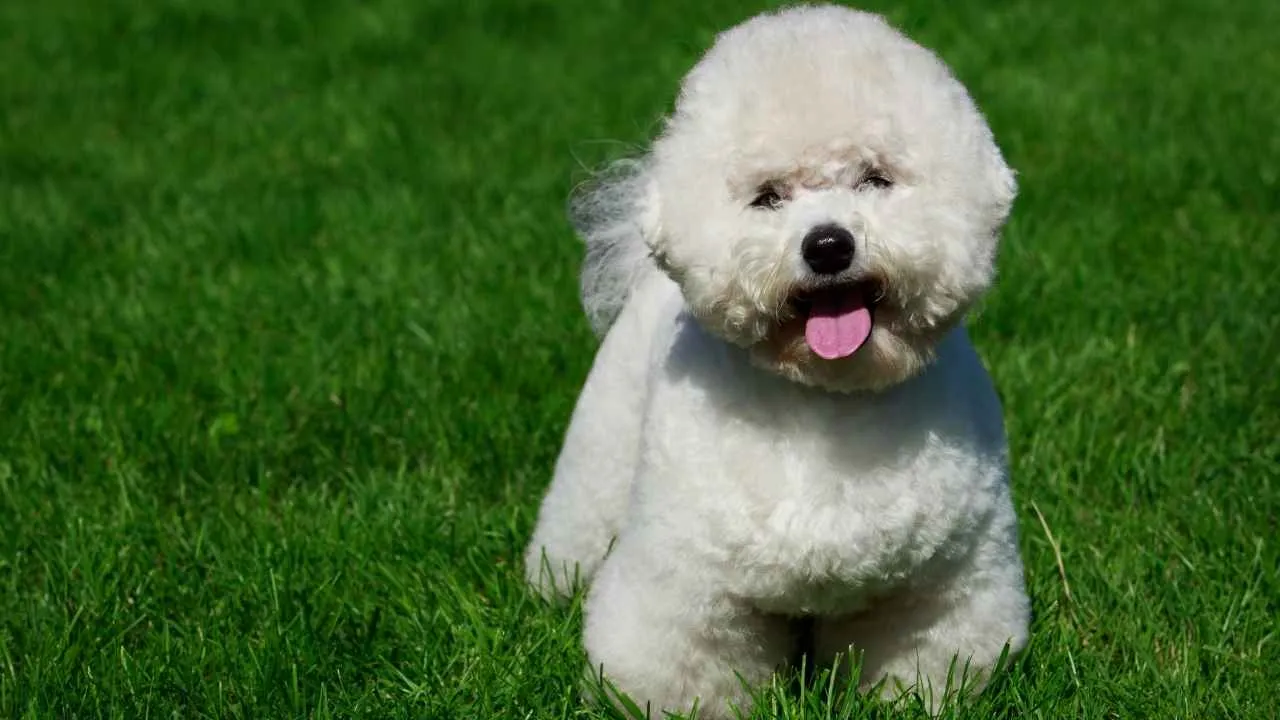
With a hypoallergenic coat and a heart full of love and joy, the Bichon Frise is a furry friend with an amazing, friendly nature that loves human interaction.
WebMD says these dogs were practically made for pet therapy because they have the ability to adapt, stay calm, and give affection to the most needy ones.
Key Therapy Traits:
-
Hypoallergenic coat and low shedding, easy maintenance
-
Cheerful and clown-like personality
-
Easily trained for therapy work
-
Gentle nature and patient with children and older adults
In schools or nursing homes, Bichons are one of the top therapy dog breeds for emotional support and smiles. They may look like clouds with legs, but their emotional intelligence is what really sets them apart.
4. Pug

Ah, the Pug. The dog with a wrinkly face only everyone loves.
Pugs are funny, sensitive, and devoted to their people… all traits that make them wonderful emotional support animals. Their goofy charm and expressive faces are pure joy, and their soothing presence makes them a hit in any therapy setting as assistance dogs.
Key Therapy Traits:
-
Compact and great for small settings and hospitals
-
Adaptable family dog and low maintenance
-
Friendly disposition toward other dogs and even strangers
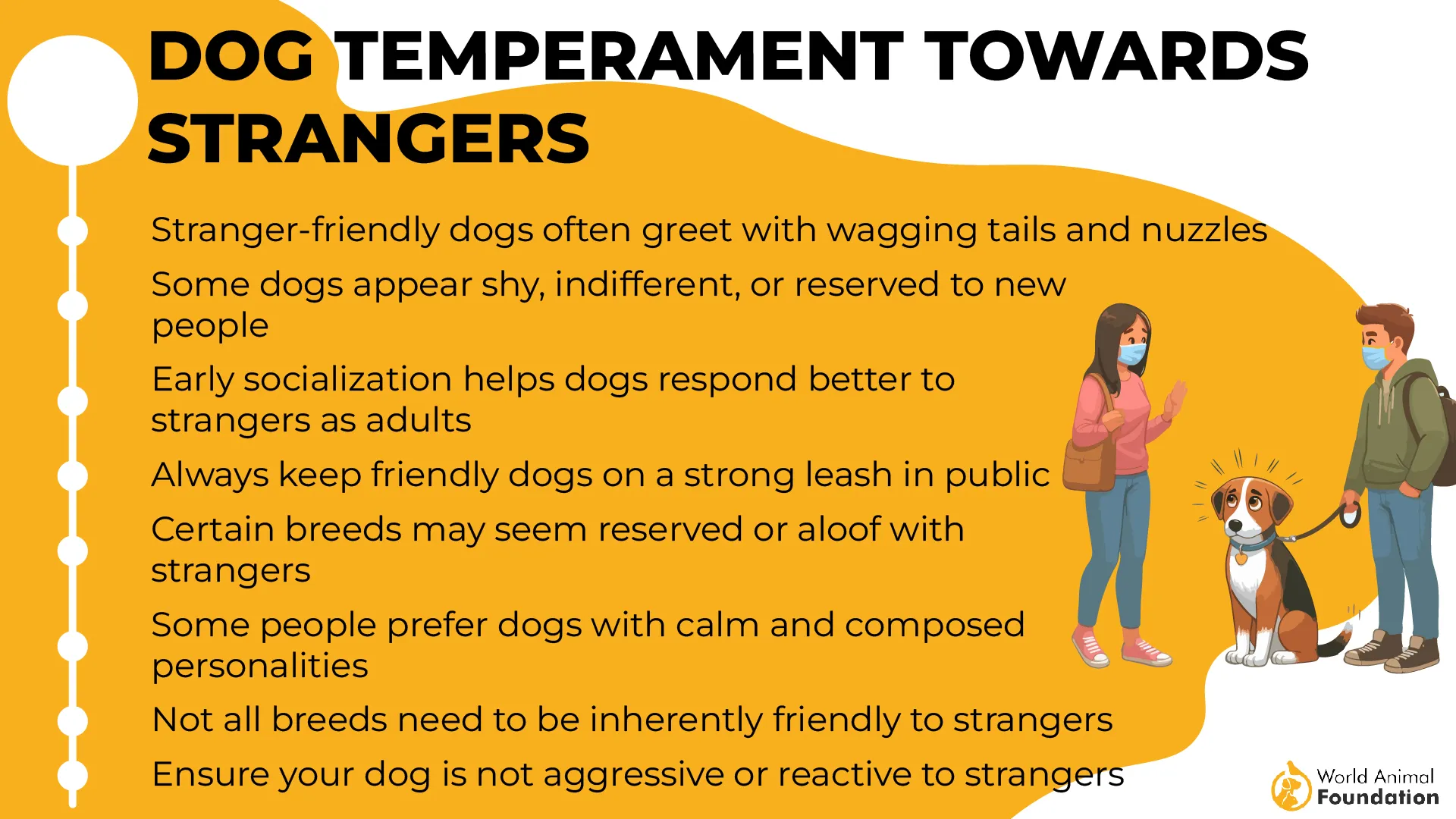
-
Loves to be a companion dog and adores human touch
Their gentle nature makes them perfect for anyone needing a furry friend who can offer laughter and love… often at the same time.
If you struggle with anxiety and are unable to manage it (therapist advice needed here; who knows they might recommend a companion animal?) or simply need daily comfort, Pugs have that psychiatric service dogs aura about them.
5. Shih Tzu
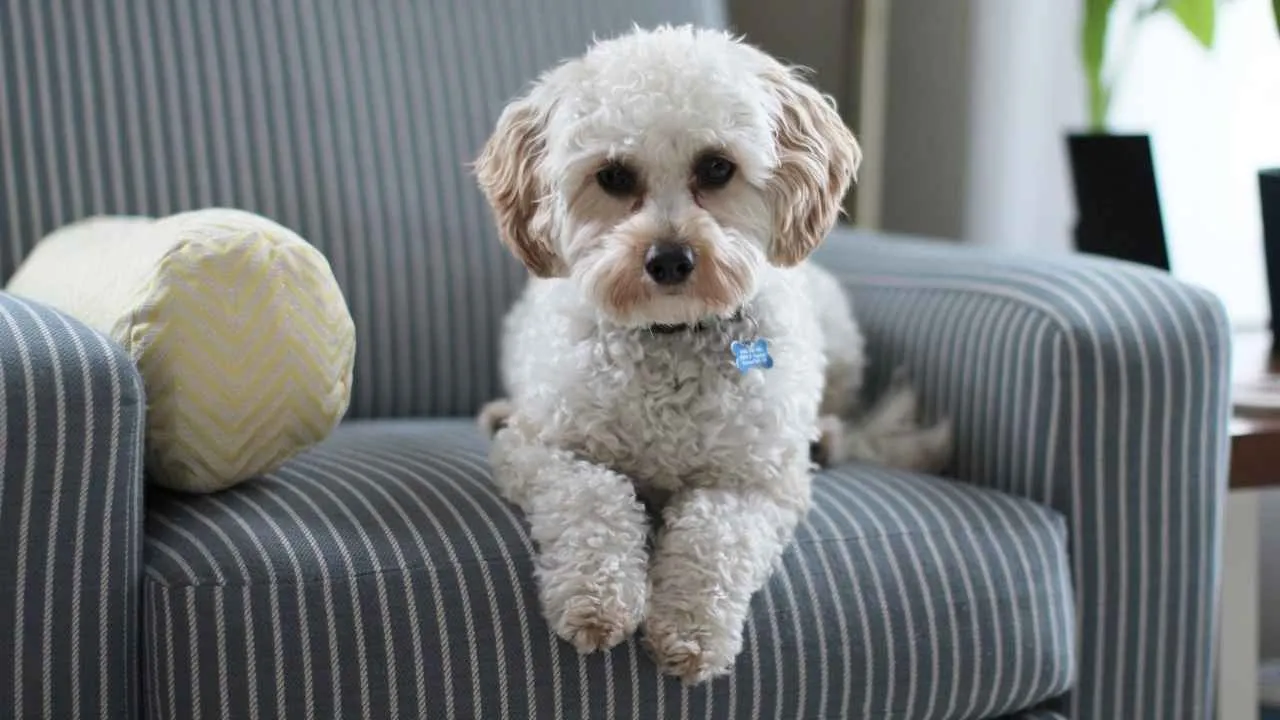
This small breed has ancient roots in Chinese emperors’ courts, and they were purely bred for companionship. And it shows. Shih Tzus are experts at providing emotional support, and they love to be in calm environments where they can bond deeply with their people.
Key Therapy Traits:
-
Calm, sweet-natured, and affectionate
-
Gets along well with kids and adults
-
They need hair brushing, minimal shedding
-
Loves cuddling and lap time
-
Very responsive to gentle training
Dog owners choose Shih Tzus if they are dealing with trauma or social anxiety. All thanks to this small dog’s calm demeanor and loving gaze. This is one of those small dog breeds that was born to sit beside you and offer quiet love when words fail.
6. Maltese
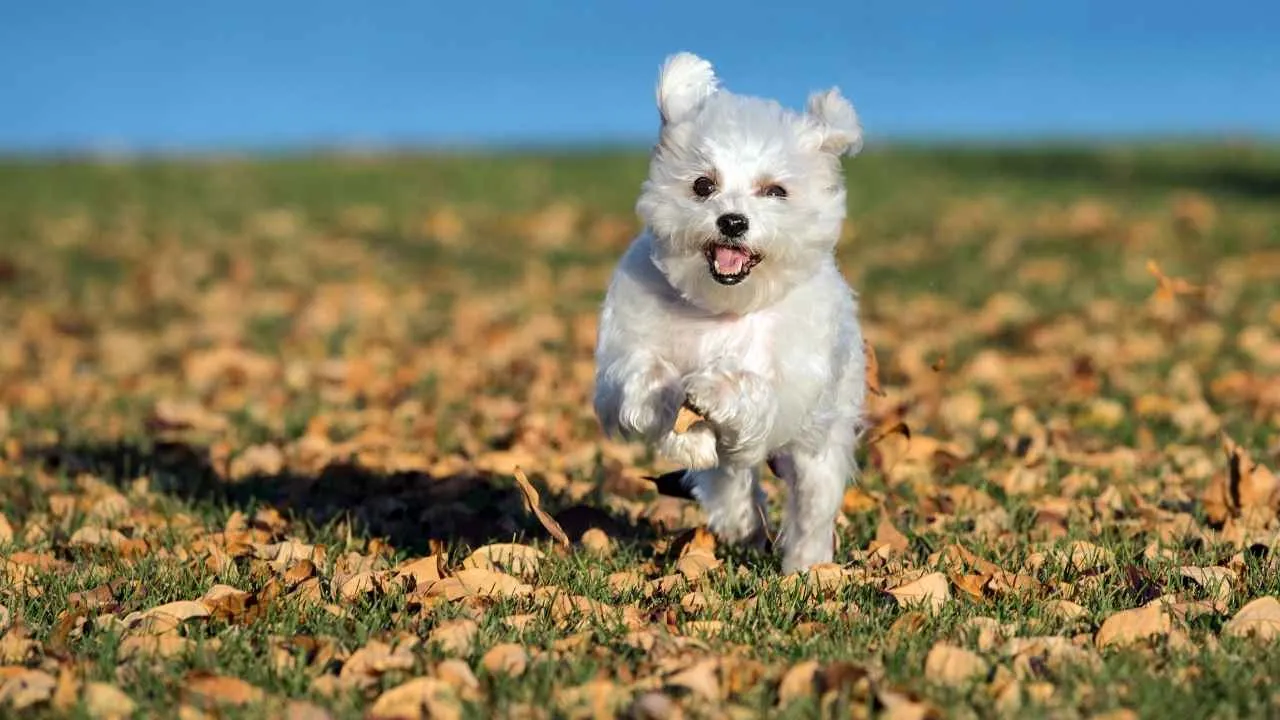
This breed is elegance and empathy in a pint-sized package. The Maltese may be small in size it has a massive devotion. Silky coat and soothing presence make these dogs top companions to be used in animal-assisted therapy. Another reason is their ability to bond instantly with new people.
Key Therapy Traits:
-
Sweet, non-aggressive, and deeply loving
-
Easy to carry and adaptable to any living space
-
Gentle temperamentis ideal for therapy work
-
Ideal for people who want a calm lap doggy
This small breed forms strong attachments and knows exactly when you need comfort. For young adults, older adults, and anyone needing emotional grounding, the Maltese is a calming and quiet doggy.
7. Cavalier King Charles Spaniel

It is no accident that Cavalier King Charles Spaniels were bred to warm laps in royal courts… and they have not forgotten their calling. Even today.
They are among the most affectionate therapy dogs and are known for their empathy and calming nature. Flaunting floppy ears and soft eyes, it seems as if they are understanding human emotions.
Key Therapy Traits:
-
Exceptionally gentle and affectionate
-
Great therapy dogs for kids, seniors, and everyone in between
-
Eager to please and quick to learn
-
Perfect doggy size for therapy settings
There is DEFINITELY something healing about being around a Cavalier. They have a unique ability to connect deeply with their humans than certain breeds, and that is why they have been preferred as service dogs for therapy.
8. French Bulldog

Enter any type of French Bulldog if you want a comforting presence that does not bark much, loves naps, and makes friends wherever it goes.
They have a tough exterior, but Frenchies are soft-hearted and incredibly intuitive. Their chill aura is perfect for therapy tasks, specifically in noisy or stimulating places where calm dogs are mandatory.
Key Therapy Traits:
-
Low-energy dog breed with an easygoing attitude
-
Needs only moderate exercise, highly trainable
-
Highly affectionate and people-oriented
-
Excellent for therapy purposes if properly trained
French bulldogs and Pug pups may feel like the same class of four-legged friends, but each has a knack for providing comfort in their own way. They are excellent companions in hospitals or urban settings where their size, temperament, and affection make them great therapy dogs for all ages.
9. Beagle
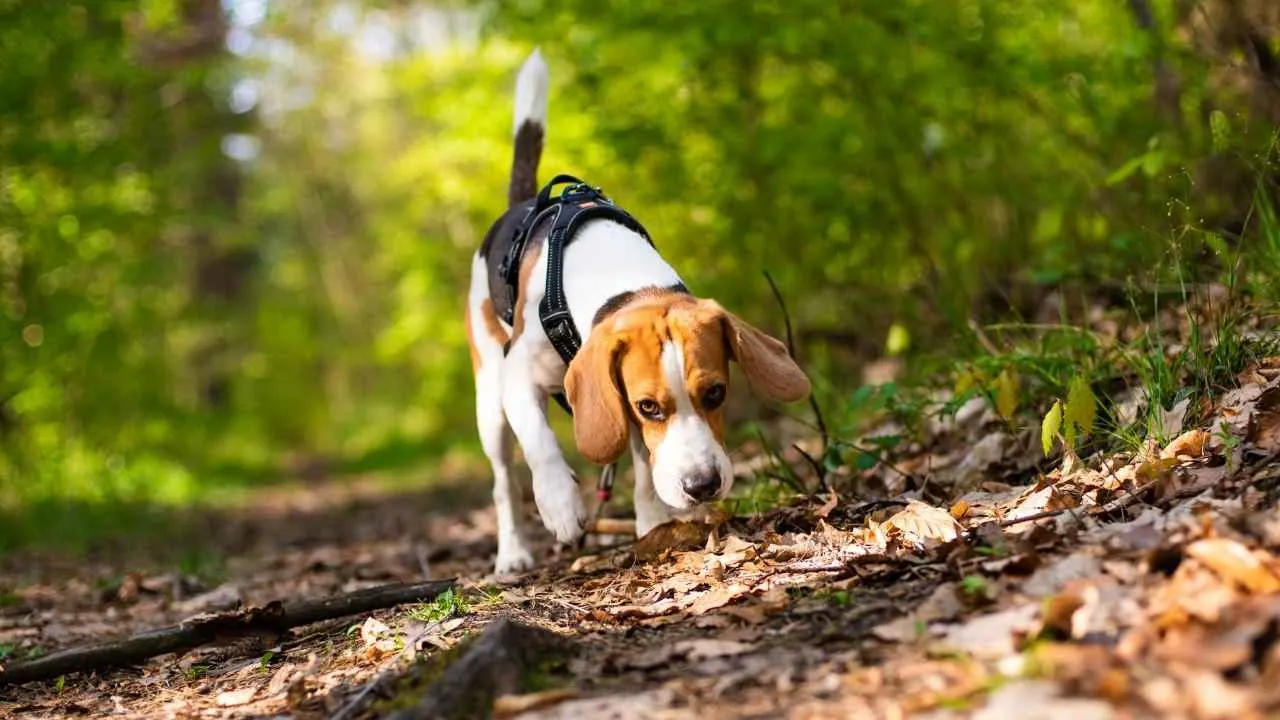
With a nose for feelings and an unmatched sense of smell, the Beagle offers more than just tracking abilities. It is also one of the best therapy dog breeds when properly trained.
Key Therapy Traits:
-
Naturally gentle and sociable
-
Friendly with kids
-
Excellent listeners and great for emotional bonding
-
Needs daily walks and mental stimulation
Beagles are companion animals at heart. Their floppy ears and soulful eyes make them a go-to for therapy in settings where approachability matters. They bring warmth wherever they go. They rescue you from the emotional hells and feel good while doing so. And yes… they often bring smiles, too.
Conclusion
Some of the world’s most powerful emotional healers come with short legs, floppy ears, and a love for belly rubs. These small therapy dog breeds remind us that you don’t need a giant frame to offer comfort.
Be it the endlessly joyful Bichon Frise, German Shepherd, or the emotionally intuitive Dachshund, every suitable breed on this list offers you laughter, calm, companionship, or connection. With proper training and lots of love, these specific breeds can change lives in therapy settings, homes, and hearts.
Never underestimate the therapeutic benefits of small dogs, as they can also be highly intelligent. So if you are looking for a great emotional support dog that can fit in your lap, your heart, and even your travel bag, your dog brings love… and it practically delivers healing.


